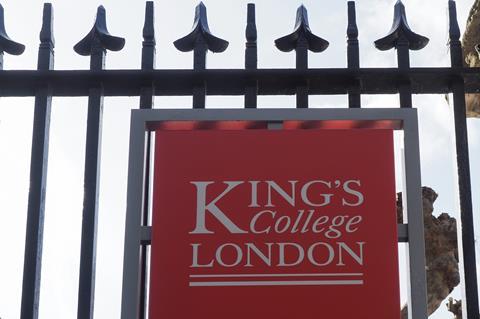Funded legal advice should be made available for victims of state scandals applying for compensation, according to the latest report from King’s College London on redress schemes.
Research published by King's College London earlier this year found ‘structural failings’ in the Windrush Compensation Scheme. In June, the university's legal clinic hosted a roundtable discussion with victim advocates, lawyers and researchers with expertise relating to various compensation schemes.
In a report published today, King’s Legal Clinic calls for schemes to be designed in a way that minimises any retraumatising effects and are accessible. Application processes should be straightforward, trauma-informed and compassionate. Funded legal advice and support services should be made available from the outset of a claim to safeguard victims.
Read more

Roundtable participants agreed that accessible, good quality funded legal advice was necessary to enable victims to make claims ‘due to the fear and distrust felt towards the state and the need for lawyers to act as buffer and support victims to make objective decisions in emotionally charged circumstances’.
The report says: ‘The lack of any funded advice in the [Windrush Compensation Scheme] was highlighted in the wider context of a very high refusal rate for the scheme compared to the [Horizon Shortfall Scheme] and [Lambeth’s Children’s Home Redress Scheme] which provided some level of funded advice.
‘Some victims’ advocates raised concerns about the involvement of lawyers due to a belief that some lawyers are “just after the money”, though they felt this could be addressed with proper vetting of lawyers or specialist panels. Notably, some victims preferred to manage information and direct the process entirely to retain ownership and as a form of empowerment to reflect their deep understanding of the harm suffered.’
In July, the National Audit Office criticised the lack of a central coordinated approach when government sets up new compensation schemes, which had led to mistakes and design inefficiencies, and delays in getting money to claimants.
Shaila Pal, supervising solicitor at King’s Legal Clinic who led the roundtable discussion, said: ‘[Victims] have been failed by the state and it is unacceptable that schemes designed to compensate them are further adding to the damage already caused. Their experiences are often marginalised, schemes are inconsistent, the compensation offered feels inadequate and many told us they find the whole process traumatising. We need a system that is fair, collaborative, swift and compensates people fully and appropriately for the serious harms they have suffered.’


























